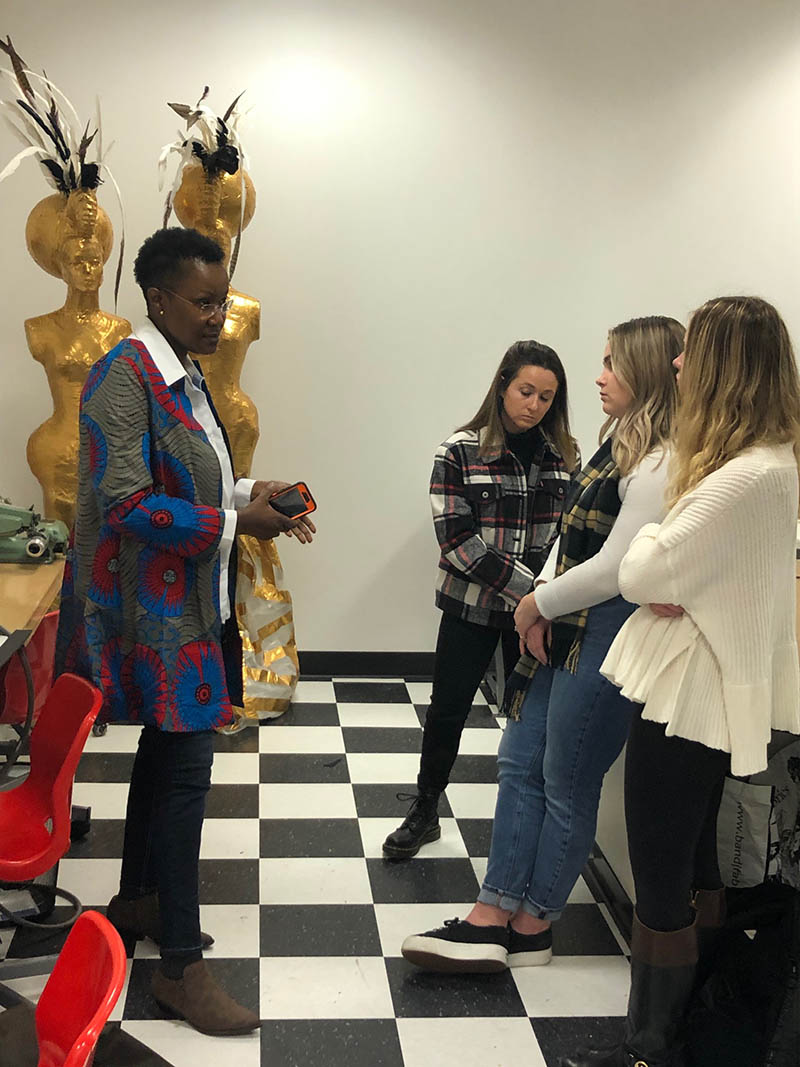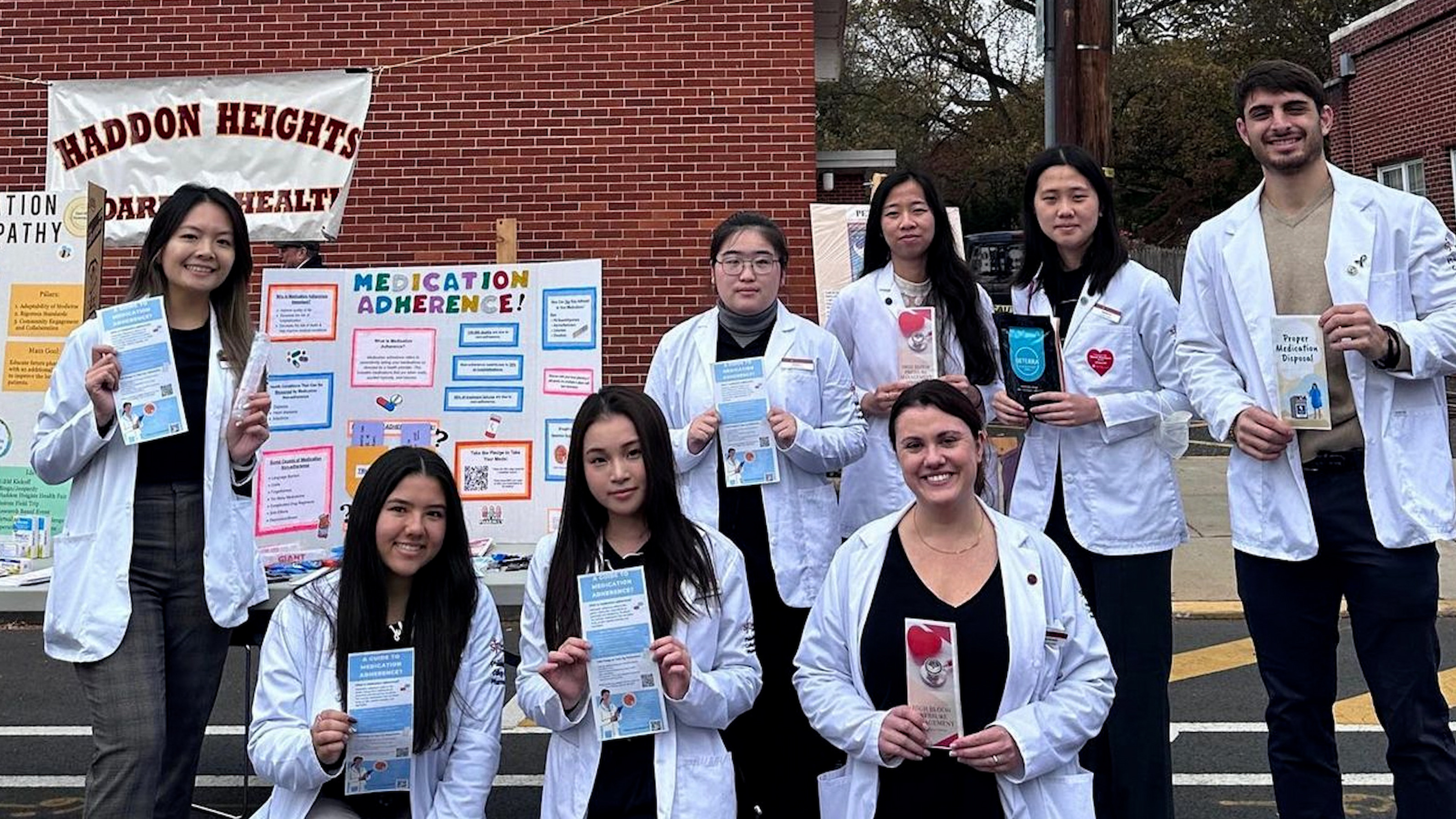Students Build Marketing Buzz for Philly Fashion Startups
Students in Michael Solomon, Ph.D., professor of marketing’s fashion marketing course will formulate strategies with the ever-changing retail consumer in mind -- a concept outlined in Solomon’s new book.

For fashion startups, breaking into the industry is a costly proposition that often leaves little money left over to employ social media and marketing teams to help the brand build buzz and grow.
A group of Saint Joseph’s University students are fulfilling that role for startups participating in the Philadelphia Fashion Incubator, a city-sponsored program that offers education, connections and other resources to local designers. The students are taking a fashion marketing class taught by Michael Solomon, Ph.D., professor of marketing.
It’s a win-win proposition for both groups, says Solomon, who developed the course with an eye to giving students hands-on, tangible experience they could use when applying for jobs after graduation. The students will be working alongside the companies to develop marketing strategies tailored to each startup’s individual needs and business goals.
“When students graduate, if they go to work for a big company, they’ll have relatively little input, especially as a junior team member,” Solomon says. “By partnering with companies that are in their beginning stages, they're able to get in there and walk the walk, implementing different ideas and strategies that they’ve learned throughout school.”
“By partnering with companies that are in their beginning stages, they're able to get in there and walk the walk, implementing different ideas and strategies that they’ve learned throughout school.”
Michael R. Solomon, Ph.D.
Professor of MarketingThe students are working with five different designers in groups of two to three per designer. Each group meets with its company weekly, via video or in person.

“The groups are first doing an ‘audit’ of each designer’s strengths and weaknesses, and working with them to identify strategic objectives they hope to accomplish during the semester,” Solomon says. Those objectives vary widely, he adds: For example, one designer makes apparel targeted to plus-size, older women; another creates custom-made ‘wearable-art,’ and a third makes shirts and blouses that close with Velcro instead of buttons for customers who might have difficulty fastening traditional garments.
By working alongside student groups, both the company and students will watch the strategies play out in real time, learning with and from one another, Solomon says.
“All of the students in the class are graduating seniors, who will now be able to put this invaluable experience on their resumes,” Solomon says. “For the students to be able to say that they worked hand-in-hand developing marketing strategies with a startup company will really give them a leg up when applying for jobs post-graduation.”
Students will formulate marketing strategies for their partner companies with the ever-changing fashion consumer in mind, a concept outlined in Solomon’s new book, Why Fashion Brands Die & How To Save Them.
According to Solomon, consumers are becoming more interested in sustainability, especially in fashion. Many people purchasing new clothing lean towards what Solomon refers to as “investment purchasing,” where in lieu of buying five inexpensive items of decent quality, shoppers purchase a single, more expensive item that is made well and will hold up longer.
This change in the buying mindset is a slow one, according to Solomon, who compares it to turning a large battleship in the ocean. He expects that his students will use their real-world experience to identify these trends and align marketing strategies to match them.
“One of the things I think most of the student groups will be doing is designing and implementing social media campaigns, drawing on their knowledge as consumers and marketing students to help their partner companies appeal to this changing consumer,” Solomon says.
The startups are trying to succeed in a tough retail environment that has prompted even legacy brands to close stores or shut down completely. Already in 2020, mall staple Papyrus announced that it will close all of its stores, and Pier One Imports is closing a significant number of its stores in an effort to cut costs.
The goal for the Philadelphia Fashion Incubator companies, Solomon explains, is not to become a fashion powerhouse overnight. Rather, he hopes students will find that more important, and attainable goals will be to help their companies build momentum, acquire key buying accounts and grow their brand.
“One important lesson is to listen to your customers and not get too distracted by what you ‘assume’ they want,” Solomon says. “The book talks about brands like Nike and American Apparel that failed in some way because they didn’t do this.”



